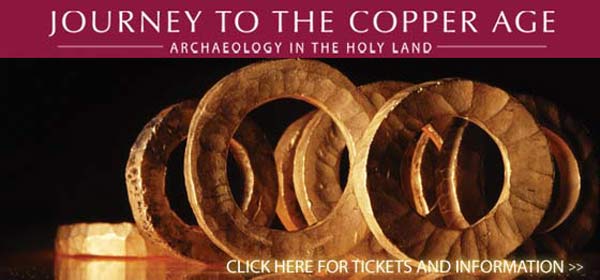| |
|

LETTER FROM JERUSALEM
'Right of return' and 'undivided Jerusalem' jeopardize any bargain at Annapolis
By Ira Sharkansky
 JERUSALEM—It is not easy being in the middle. One is always examining postures that are proclaimed or screamed from right and left, and feeling uncomfortable with both. The temperature heats up when someone prominent says it is time to make a clear decision. When that someone is the President of the United States, lots of people wake up and begin proclaiming their routines. Often they begin, "We must . . . " or "We must not . . ." Politics rejects the concept of musts, minimum or maximum boundaries for what is permissible. It is details that make something more or less tolerable. JERUSALEM—It is not easy being in the middle. One is always examining postures that are proclaimed or screamed from right and left, and feeling uncomfortable with both. The temperature heats up when someone prominent says it is time to make a clear decision. When that someone is the President of the United States, lots of people wake up and begin proclaiming their routines. Often they begin, "We must . . . " or "We must not . . ." Politics rejects the concept of musts, minimum or maximum boundaries for what is permissible. It is details that make something more or less tolerable.
The upcoming conference at Annapolis is one of those occasions when slogans are unfurled and waved against the rhetoric of adversaries. In this case, the atmosphere is so charged with distrust that invitations have not yet been sent out, even though people in the know say that the conference will begin during the last week of this month. I would bet that there will be a conference, but I would not bet the food money. I would not bet anything that the conference will make peace.
The Israeli prime minister is expressing his optimism that significant progress is possible toward a solution of the Israeli-Palestinian conflict. Palestinians seem less hopeful, perhaps because many of their leaders are proclaiming their insistence on the right of refugees to return to homes they left decades ago, and Israelis are holding to a strong negative on that issue. Israeli leftists are claiming that this is the last opportunity on the horizon to be flexible, which often means giving the Palestinians almost all that they want, except (even for most leftists) the right of return.
More or less typical of the right is a message passed on from Shamash: The Jewish Network, affiliated with the Hebrew College of Newton. It urges Jewish and Christian friends of Israel to contact the White House, and insist that the President not pressure Israel about territorial concessions. Among its points are "the Land of Israel belongs to the Jewish people," and "The proposed concessions involve the Biblical heartland -- most of Judea and Samaria (the West Bank) as well as parts of Israel's eternal capital, Jerusalem.
I would be among the last to support territorial concessions by Israel that do not come along with worthwhile concessions from the Palestinians. However, this language from greater Boston is what no one needs when serious negotiations are even a remote possibility.
"The Biblical heartland" is not the way to begin a conversation. For one thing, it is not clear what is the Biblical heartland. The Bible gives several descriptions of the Land of Israel. (Genesis 15:5-14; Genesis 17:8; Numbers 34:2-13) And all of them may be nothing more than the hyperbole of Bible writers for an area that was much smaller than the smallest of these designations. Even that was, according to the Bible, was not given to the Israelites alone (Judges 2:20-21). Some of what is likely to be meant by the "Biblical heartland" are areas heavily settled by Arabs, and few Israelis want to keep them.
Rejection of negotiations about Jerusalem is more of the same. Jerusalem is currently the largest and most populous of Israel's municipalities. It was enlarged several times after the 1967 war. Since David is said to have made it his capital, the shape and size of "Jerusalem" has changed countless times. What we know as the Old City is not the same as "Biblical Jerusalem."
Most of Jerusalem is not holy to anyone. The neighborhoods where almost all Jews and Arabs live are no more sacred than parts of Indianapolis. Rejecting any negotiations about pieces of Jerusalem denies one of the more promising chances to give the Palestinians something that will not hurt Jewish interests.
To be sure, drawing lines through what is now the Jerusalem municipality will not be easy. It will tax the imagination of professional geographers as well as the tolerance of Israeli and Palestinian politicians. It will also raise knotty questions about forcing Arab Jerusalemites to become Palestinians, and perhaps giving up Israeli health insurance and other benefits. It may be best to search for some multi-national municipal framework with elements of neighborhood autonomy.
Any of several options would be better than what is on offer from those who wave a Bible in defense of rigid positions. A careful reading of the Bible shows that it says nothing about the proper boundaries of Jerusalem, and nothing clear enough to guide negotiations about the Land of Israel.
It is never useful to begin negotiations by saying, "No deal, except for what I want." A number of Palestinians are saying that with respect to the right of return. I would rather the blame for a failed conference be on them rather than on Israeli naysayers. I also know that neither Palestinian nor Jewish naysayers will listen to me.
Sharkansky is professor emeritus of political science at the Hebrew University of Jerusalem

Scholars-in-residence
program
Presentations are free; kosher meals moderately priced
● Rabbi
Motti Berger, founder of "Jews for Judaism," Nov. 16-17
● Rabbi
Yakov Horowitz, founder, Project Y.E.S. (Youth Enrichment Services)
for
Agudath Israel, Jan. 4-5
● Rabbi Ari
Kahn, director, Foreign Student Programs,
Bar Ilan University, Israel, Feb.
22-23
Call us for details at (619)
287-9890 |


DOING IT BETTER
We share our territorialism with the lower orders of animal life; can we transcend it?
By Natasha Josefowitz
LA JOLLA, California—The homing instinct¾we think of pigeons that can travel miles over unknown territory to return to their place of departure. We’re not sure how they do it¾is it magnetic fields, topography, the sun, the stars? Salmon do the same thing. They find the river that spawned them and swim up the currents against obstacles until they are “home.” It is thought that they do it by smell. Animals in Africa look for the same waterholes in their yearly migrations. Some birds and fish migrate for hundreds and sometimes thousands of miles for better feeding grounds or safer birthing places.
One theory is that these routes were much shorter before the tectonic plates started moving apart. In other words, there is a very long memory that propels animals to seek an ancestral home.
It does not take too many mutations for animals that were of the same species to differentiate themselves enough to not be able to mate anymore. They recognize each other by a stripe, a feather, a fin, and become a subspecies that is incompatible from a formerly compatible one.
And so it is with us humans. Coming from a common ancestor we have diverged into cultural and ethnic subspecies, able to mate, but unwilling to, yet with strong homing instincts we call territorialism. To wit, the Israelis and Arabs claiming that same ancestor and that same spit of land; the Quebecois feeling French; the people of Nova Scotia reviving a Scottish brogue¾emphasizing, with great pride, their Celtic connection.
Separatist movements everywhere, the Basque in the South of France, the Irish, the former Yugoslavs now split up, the Flemish and Waloons in the Netherlands, Corsica wants independence and so do all those separate countries that used to be part of Soviet Russia.
Differences not visible to us separate Tutsis and Hutus as well as Shiites and Sunnis. I can’t tell the difference between a Protestant and a Catholic, but the animosities have run high at different times in our history.
I went to a French lycée in Paris as a child; the walls near the entrance spelled out Mort aux Juifs (death to the Jews) in large graffiti. In Switzerland where I lived for many years, Mort aux Jesuites (death to the Jesuits) was frequently scribbled in public places. And now there is Jihad (death to the infidels) and that’s us!
Is it really important for people to be surrounded only by others sharing the same belief in the same god? Is a different one necessarily an enemy? Can that enemy corrupt the population and thus endanger the beliefs being taught? Is it territory, not only in a geographical sense, but in a moral sense as well, that propels us into tribal wars or global ones?
Freud, in his Civilization and Its Discontents, writes that these early directives can be counteracted with education. In other words, we can be reprogrammed. Children who watch videos on compassion are more caring than the children who watch violent scenes, and children who watch violence also behave more aggressively than the children who watch neutral subjects. Yet throughout history it is the more aggressive hordes that have overrun other groups.
The homing instinct goes back to our roots, religious ones, ideological ones, political ones. The resurgence of extremism is a return to centuries-old explicit directives on how to live our lives.
In times of uncertainty, in order to feel safe, do we need stricter boundaries and so turn to rigid rules?
The battle is between the stern, vengeful gods who demand sacrifice and the free will to choose how we relate to others: understand, communicate, compromise, tolerate, and forgive.
I hope we still will have a choice.


THE VIEW FROM JINSA
Pakistan has neither a racial nor a philosophical identity to help unify it
By Shoshana Bryen
WASHINGTON, D.C.—America is based on its founding documents; one can "become American." On the other hand, to be German is a racial identity. And, as second and third generation Turkish-German citizens have discovered, racial assimilation is not an option and cultural assimilation doesn't always work too well either. The existence of Pakistan raises the question, "What if a country has neither a workable founding philosophy nor a single bloodline?"
Pakistan is ethnically, linguistically, culturally and tribally diverse, with no raison d'être as a country other than to be "not India." Unfortunately for the Pakistanis, according to Hussein Haqqani, an author and former advisor to three Pakistani Prime Ministers, "the country was created in a hurry and without giving detailed thought to various aspects of nation and state building."
Instead, nationalist leaders chose the lowest common denominators: pan-Islamic ideology and the threat of India, giving enormous power to religious and military elites who over time became intertwined and linked by their desire for power.
Pervez Musharraf is the latest in the line of Pakistani leaders who rule with the active acquiescence of the military and religious leadership - both need to be paid off for the government to survive. Musharraf tried marginally and self-servingly to rein in the religious establishment after September 11th. The United States tried to separate him from his military position - to enhance the "civilian government," but Musharraf cannot afford to cut his military ties. The military stands between the current tenuous situation and a Taliban-style government with nuclear weapons and between Musharraf and his own possible ouster. [There is a LOT of self-serving in Pakistan.]
There are calls for the United States to "do something" about Pakistan. Some are blaming America for what we have already one - whether supporting Musharraf too much or not supporting him enough. Musharraf himself seems to believe we will protect him to the bitter end - lest Pakistan go the way of Iran. Perhaps he sees himself as the Shah and believes that having once made the mistake of clearing out a secular ruler on behalf of the mullahs, the United States will not be inclined to do so again. He may have slightly misread the narrative.
President Bush has correctly called for Musharraf to resign his military position, for elections to be held, and for free movement by Benazir Bhutto, the primary opposition candidate. But the military, religious and civil structures in Pakistan are so completely intertwined and so completely corrupt, it is unlikely that anything we do will have much beneficial impact.
President Bush might usefully make one additional point to Musharraf: we could and did remove the Shah; but we may not have been able to save the Shah in the face of growing discontent from the Iranian middle class. We may not remove Musharraf; but when the lawyers are angry, we may not be able to save him from the Pakistani people.
Bryen is director of special projects for the Jewish Institute for National Security Affairs (JINSA)
< BACK TO TOP


Expanding our view of Veteran's Day
By Sheila Orysiek
SAN DIEGO—When we think of our military as it is composed today, we automatically see in our mind’s eye its diversity in terms of gender, ethnicity, color and religion. But this diversity is not new - it is quite old.
In 1980 John C. Dann wrote a book entitled The Revolution Remembered - Eye Witness Accounts of the War for Independence. This book presents a unique look at the Revolutionary War from the viewpoint of the foot soldiers. Until its publication most of the first-hand sources had been written by men of education and therefore were often officers in the army or the Founding Fathers or scholars. During Dann’s research at the National Archives, he came across a hitherto forgotten pile of musty papers which upon examination were the signed affidavits of veterans of the Revolutionary War.
In 1836 Congress passed the first comprehensive act to give veteran’s pensions to all still living soldiers of the Revolutionary War. Even though it was fifty years after the war, thousands flocked to courthouses across the country to give their depositions orally and sign affidavits to apply for this pension. Included were petitions from two women. These documents are stored in the National Archives and give a most intriguing perspective from the trenches and foxholes of the war. Of particular interest is one given by Sarah Osborn when she was 81 years old - she lived to be 109.
Sarah Osborn had a remarkable memory and served the army for three and a half years. Her husband had enlisted as a guard in the commissary and she traveled for the three and a half years with the baggage train. Starting in the West Point area, she witnessed the treason of Benedict Arnold and was present at the surrender in Yorktown.
For the entire time she aided the army by sewing, mending and washing clothes for the soldiers as well as cooking for them. As they dug and infiltrated the trenches in the siege of Yorktown, Sarah hauled gallon pails of the food she had cooked and the bread she had baked to the soldiers under heavy fire. After filing her petition Congress approved it and Sarah received a pension for the rest of her life. And, she had earned every penny of it.
Other women who served in the War (some of whom lived long enough to receive either state or federal pensions) were: Nancy Morgan Hart, Anne Bailey, Mary McCauley, Deborah Samson, Rachel Martin, Grace Martin, Anna Warner, Margaret Corbin, Angelica Vrooman, Mary Hagidorn. These are just the ones we know about.
Historians believe that three women disguised themselves as men and fought on the battlefields. In addition to those named above, others worked for the British as laundresses but were in fact spies for Washington - a very dangerous thing to do. The British never suspected such lowly creatures could be so valuable.
Though exact numbers will never be known, historians estimate that approximately 5,000 black soldiers fought on the patriot side in the war. It is important to keep in mind all of the different people who have been veterans over the past two hundred years and have protected and preserved the liberty we all enjoy. It includes both men and women as well as people of all colors and religions.
Jewish members among the officers of the Revolutionary army were Colonel Isaac Franks and Colonel David Salisbury Franks of the Continental Army. Several also served in the militia including Lieutenant Colonel Solomon Bush and Major Lewis Bush from Pennsylvania. It is unknown how many served in the ranks as foot soldiers.


HONORABLE MENSCHEN IN SPORTS
Unusual Suspect gladdens a Jewish family
By Joe Naiman
LAKESIDE, California—I never did get the chance to take Dyan Abrams up on her offer to visit the Oak Tree meet at Santa Anita Park, although Santa Anita will begin its Winter meet in a couple of months and hopefully I'll be able to fit atrip to Arcadia into my schedule. Regretfully I also
missed the closing weekend in which Dyan and her family earned a stakes win.
David Abrams, who is Dyan's brother-in-law, was the breeder of Unusual Suspect, who was foaled on April 14,2003, from sire Unusual Heat and New Zealand dam Penpont. Dyan, David, and Barry Abrams - who is Dyan's husband and David's brother - are the owners of Unusual Suspect, and Barry is the trainer of the four-year-old Cal-bred colt.
Maybe November 3 wouldn't have been the best day to visit Oak Tree. The Cal Cup races were held thatday, which meant it was a busier day than normal. A total of 11 races were held at Santa Anita Park that afternoon, and Unusual Suspect participated in the ninth race.
That race was the California Cup Mile Handicap, a one-mile race on Santa Anita's turf course for
thoroughbreds three years old and upward. Unusual Suspect was one of eleven horses in that
race and was given the fourth post position.
Unusual Suspect and jockey Joseph Talamo - who wasn't even born when Barry Abrams began his training career - broke second. Talamo opted to set back, placing Unusual Suspect seventh at both the quarter-milemark and the half-mile post. Three-quarters of a mile into the race Unusual Suspect was sitting eighth, but since he was only 6 1/2 lengths behind the leader his position was a matter of waiting for the stretch rather than starting poorly.
Unusual Suspect entered the stretch in fourth place, a length and a half behind leader Zoning In. Talamo guided Unusual Suspect between horses in the stretch, and late in the stretch the Abrams horse took over the lead. When Unusual Suspect crossed the finish line 1:33.89 after the starting gate opened, he was 1 3/4 lengths in front of second-place Epic Power.
If you made it to an off-track wagering site in time to place a bet on Unusual Suspect, you collected
$12.50 for every dollar you gambled. If you're a horse owner, first place pays 60 percent of the total purse, so before payoffs to the jockey and others the $175,000 purse provided the Abrams family with $105,000.
You may also remember from one of my previous columns that Barry Abrams also trains a horse named Shem Tov. That horse, who is owned by Madeline Auerbach, raced on Closing Day at Oak Tree. The fifth race November 4 was a maiden special weight competition, and although Shem Tov finished third he led entering the stretch and was only a nose behind second-place Cavanal and a length in back of winner Indian Sun.
The Southern California horse racing circuit has moved to Hollywood Park, but the Abrams family closed out the meet in their Arcadia hometown quite well. They should be in a pretty good mood if my schedule has room for a Santa Anita meet in January.
< BACK TO TOP



SAN DIEGO JEWISH WORLD
THE WEEK IN REVIEW
SUNDAY, NOVEMBER 11
Sandy Golden in La Jolla, California: "Viorst has kept a generation laughing"
Donald H. Harrison in Encinitas, California: "Hall of History at Seacrest Village recalls the residents of 54th Street Hebrew Home"
Rabbi Baruch Lederman in San Diego: "Why Baruch keeps the kippah on his head"
Joel A. Moskowitz, MD and Arlene Moskowitz, JD in La Jolla, California: U.S. standing in the world depends upon clear objectives—Dennis Ross
Rabbi Leonard Rosenthal in San Diego: "Jacob and Esau:Nature over nurture"
Melanie Rubin in San Diego: "San Diego Grandpa and Israeli Native"
Larry Zeiger in San Diego:"Lars finds himself a girl in bizarre movie that will make you laugh—and also think"
Publishers tell changes in format and frequency for San Diego Jewish World
THURSDAY, NOVEMBER 8
Gary Acheatel in Ashland, Oregon: "Carter, Walt, Mearsheimer fail 3-D test in their assessments of Arab-Israeli conflict"
Carol Davis in Vista, California: 'Argentina proves a crackling refuge for European family in The Magic Fire'
Ira Sharkansky in Jerusalem: "U.S. policy-makers have a record of mistakes in U.S.; is Israel next?"
Photo Story: JFS relocates its senior center to Congregation Beth Israel
WEDNESDAY, NOVEMBER 7
Sherry Berlin in La Jolla, California: "Pre-school playground was a wonderful venue for teaching at Jewish Book Fair"
Garry Fabian in Melbourne, Australia: "Australian children enlisted in battle against global warming"... "Another rating system for political candidates: how do their websites compare with each others?" ... "South African rabbi visits Queensland" ... Israeli ambassador's comments may have been 'reason' for vandalism of Jewish cemetery" ... "Same-sex unions attacked by Orthodox rabbi."
Joel A. Moskowitz, MD and Arlene S. Moskowitz, JD in La Jolla, California: "Audience kvells over Tony Kushner"
TUESDAY, NOVEMBER 6
Donald H. Harrison in La Jolla, California: "An internationalist makes Israel his cause."
J. Zel Lurie in Delray Beach, Florida: "Not only enemies but some would-be friends believe the Jewish stereotypes."
Joel A. Moskowitz, M.D. and Arlene S. Moskowitz, J.D. in La Jolla, California: "How Jews became Germans: they didn't."
MONDAY, NOVEMBER 5
Shoshana Bryen in Washington, D.C.: "Oil prices are so high, it's time to pull out the stops in behalf of alternative fuels"
Cynthia Citron in Los Angeles: "For tsuris like Sheldon and Mrs. Levine's, you can stay home and save your money"
Judith Apter Klinghoffer in Cherry Hill, New Jersey: "Israel's peace dividend could be dwarfed by impact on the Palestinian economy."
Norene Schiff-Shenhav in Fallbrook, California: "Our unforgettable week of fire, stress, separation, love, kindness and relief"
< BACK TO TOP
|
|

